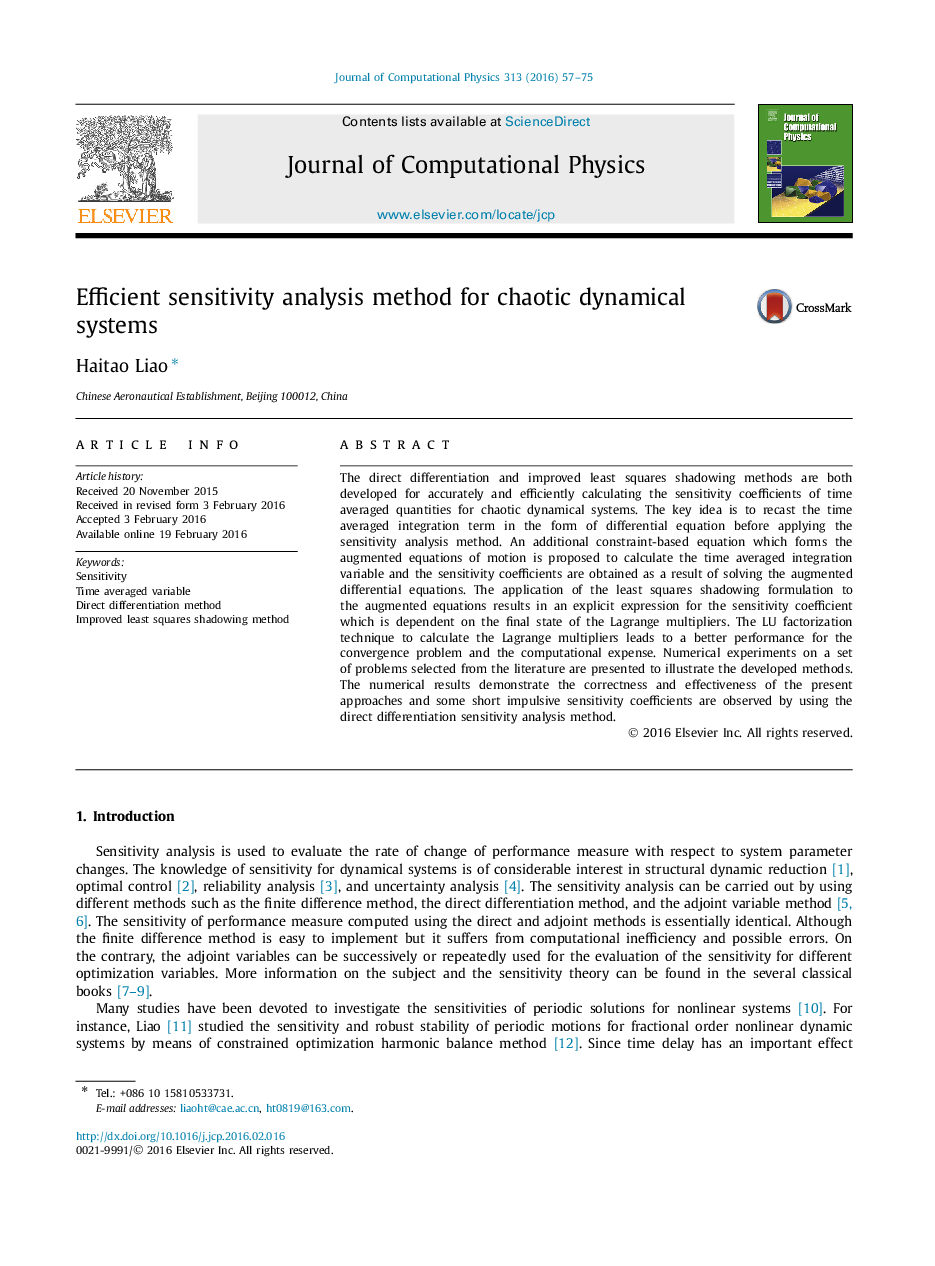| Article ID | Journal | Published Year | Pages | File Type |
|---|---|---|---|---|
| 519553 | Journal of Computational Physics | 2016 | 19 Pages |
The direct differentiation and improved least squares shadowing methods are both developed for accurately and efficiently calculating the sensitivity coefficients of time averaged quantities for chaotic dynamical systems. The key idea is to recast the time averaged integration term in the form of differential equation before applying the sensitivity analysis method. An additional constraint-based equation which forms the augmented equations of motion is proposed to calculate the time averaged integration variable and the sensitivity coefficients are obtained as a result of solving the augmented differential equations. The application of the least squares shadowing formulation to the augmented equations results in an explicit expression for the sensitivity coefficient which is dependent on the final state of the Lagrange multipliers. The LU factorization technique to calculate the Lagrange multipliers leads to a better performance for the convergence problem and the computational expense. Numerical experiments on a set of problems selected from the literature are presented to illustrate the developed methods. The numerical results demonstrate the correctness and effectiveness of the present approaches and some short impulsive sensitivity coefficients are observed by using the direct differentiation sensitivity analysis method.
